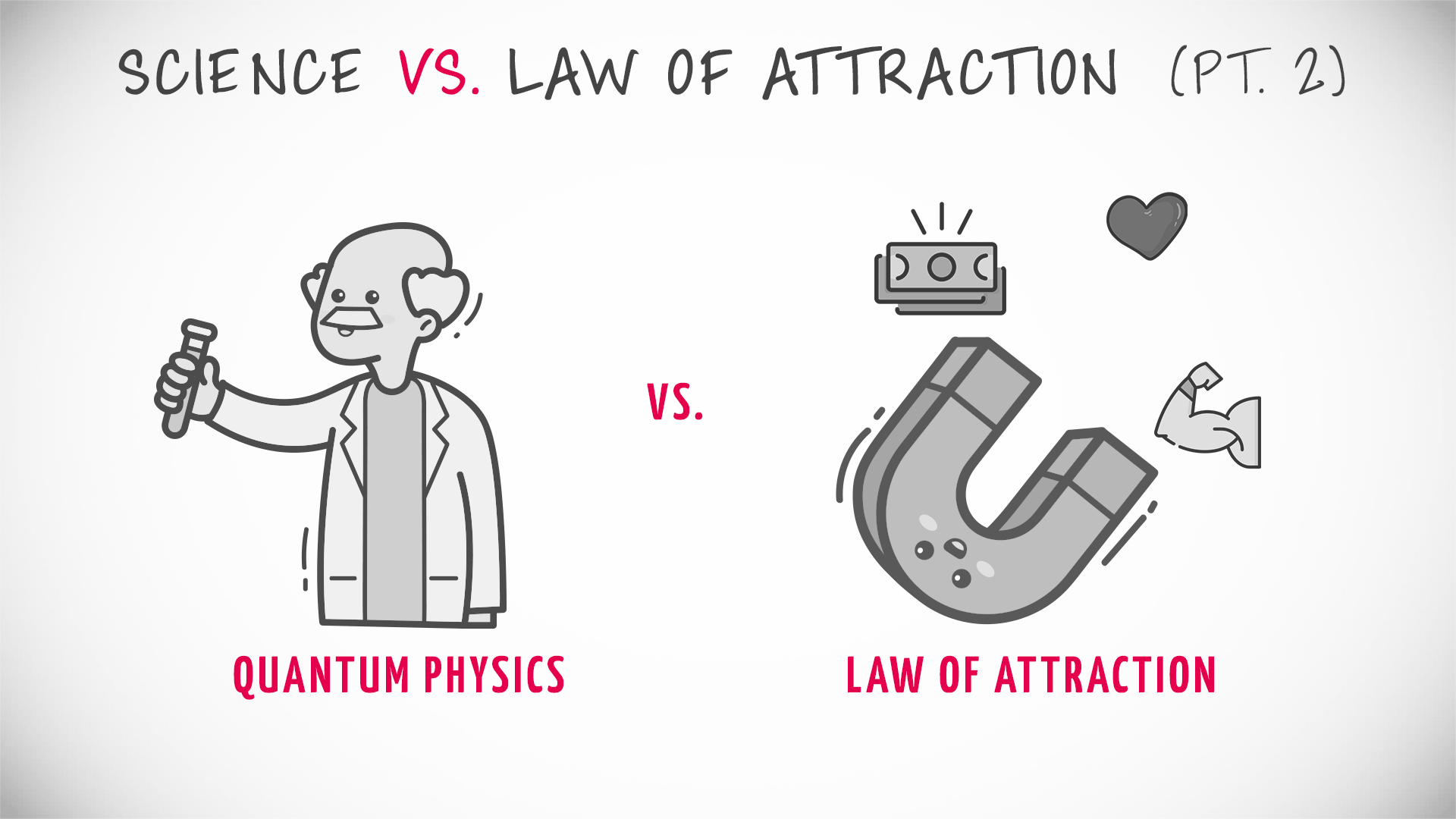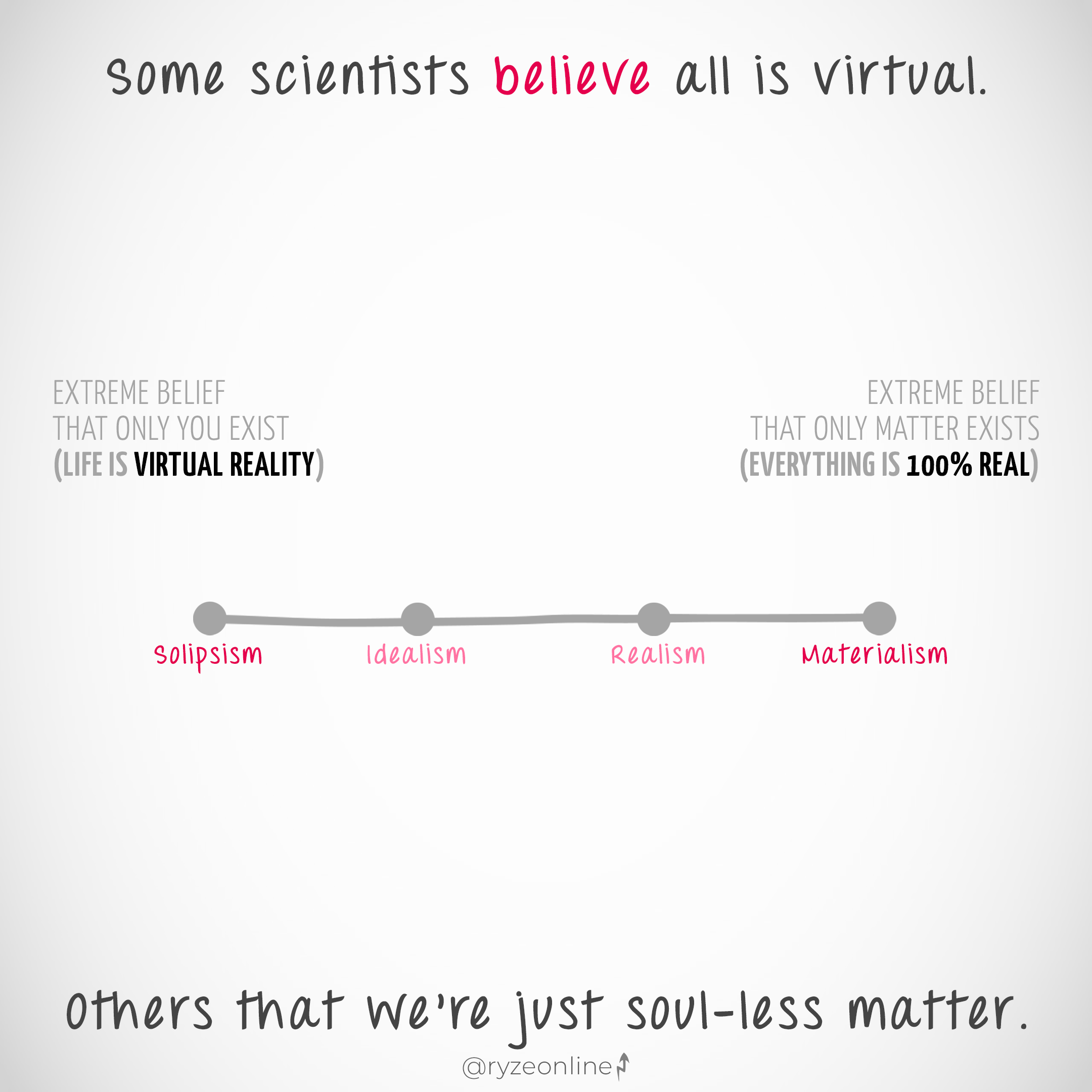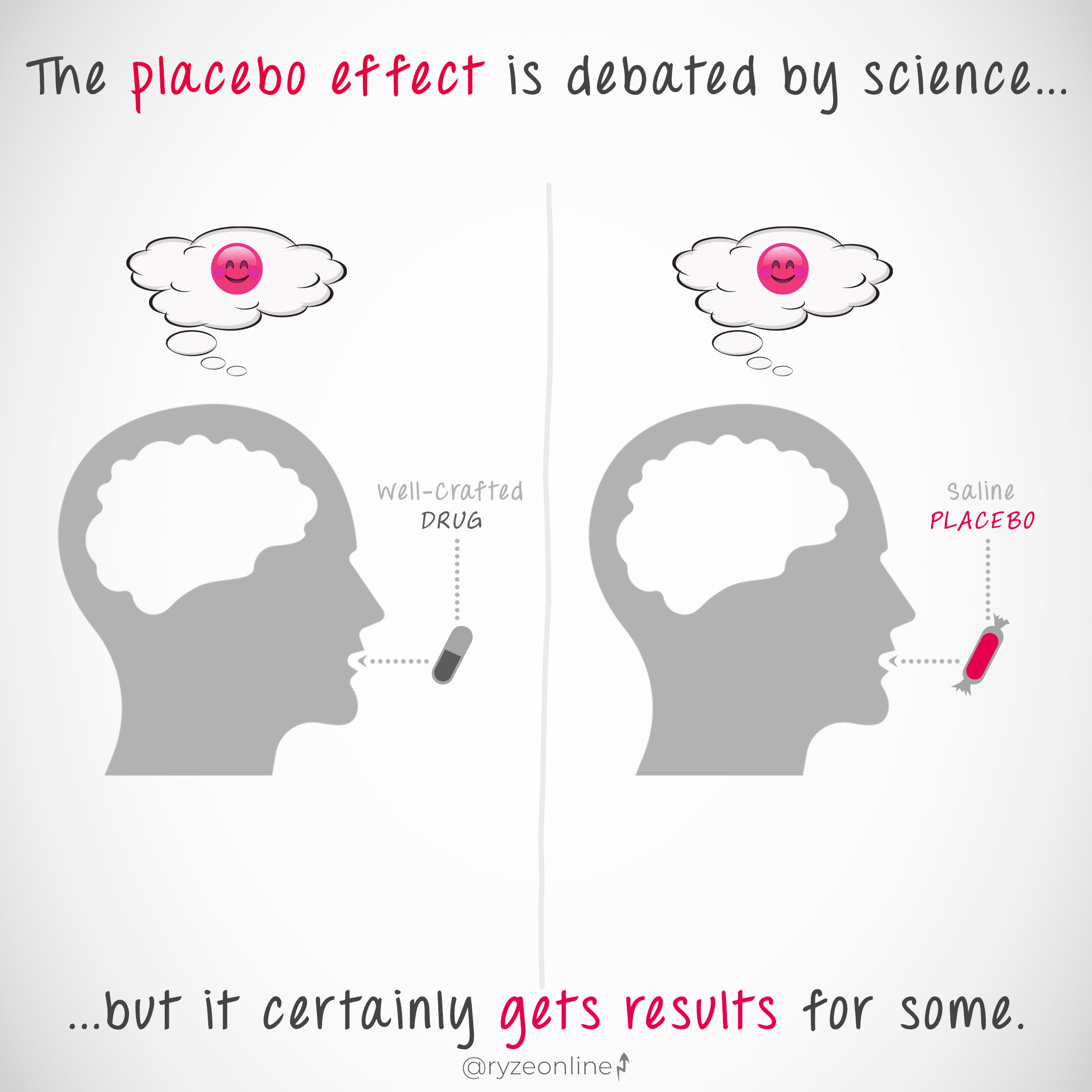CONTINUED FROM PART ONE.
When we last left off, Emma was watching a video in the car, waiting for her father to return with meals from McDonald's.

I accidentally slammed the door a bit too hard when I got back to the car, but Emma was too excited to even comment on it. Instead she gushed about the video she'd just watched.
“Wow, Dad, that video was intense! He started at the double-slit experiment, dug deep into the observer effect and problems in quantum measurement, and more. I could tell he was trying to make it simple, but since I don’t know the ‘language’ of quantum mechanics, it was super complex.”
“Oh, so you didn’t like it?”
“No, I just mean, I normally can’t sit through boring science stuff like that, but I guess I’m so hungry to know if our consciousness really does control our reality, I was motivated to give it a chance. Paraphrasing Radin, ‘Everyone offers theories about consciousness but few real, solid, rigorous experiments are actually done.’” Emma took the chicken nuggets I was offering as we talked.
“Yes, it’s definitely interesting and seems to be fairly rigorous scientific experiments and testing, right?”
“Totally!” Emma’s enthusiasm was the perfect note for us to get back on the road, so I hit the gas.
“Well, be careful, the whole point of this conversation isn’t that classical physics is ‘right’ or quantum physics is ‘right’ or that Dean Radin is ‘right.’ The whole point isn’t for you to take some other person’s work or ideas as gospel, it’s for you to think things through for yourself, and more importantly...
Experiment well for yourself, in your own life.
I’m cherry-picking videos and resources that lean heavily towards ‘believing’ in the law of attraction and the impact of consciousness on reality. Some of the videos have religious agendas, monetary agendas, ego-driven agendas, and more. They may be enlightening, or off-putting. They may be right about some things, but there’s also plenty of stuff out there that will say that's ‘not real science’, or everything I’ve shown you is all conjecture from ‘quacks.’ There’s lots of people out there discrediting people’s ideas, sometimes with noble intentions, sometimes out of knee-jerk insecurities.”
“Any examples?”
“Well, there’s countless books and videos that explore opposing views. A fun example might be this entire reddit thread where people say quantum mechanics proves nothing about consciousness’s place in life. There are other people in the same thread quoting many famous physicists who say otherwise. You’re going to find lots of ‘smart’ people arguing that ‘their view’ is ‘right’ and everyone else is wrong. And then there’s another reddit thread discussing the validity of the debate in the first reddit thread. Which side is right? Which philosophy is right? Which science is right? Who’s science was ‘most precise’, ‘most fair’, ‘most rigorous?’ Can science even really say anything about consciousness, reality, manifestation, or law of attraction? Does it even matter?”
‘Consciousness is a fascinating but elusive phenomenon. It is impossible to specify what it is, what does, or why it evolved. Nothing worth reading has been written on it.’ - Stuart Sutherland, International Dictionary of Psychology, 1989
Emma’s jaw hung open as I tore apart the resources I’d been offering her and questioned the validity of most arguments made by most scientists, but I just barrelled on.
“Radin’s earlier works have been criticized as ‘misreported’ or ‘loose’ or ‘unscientific’, so he responded by being even more precise and rigorous with his more recent experiments, so they might be reliable to form some conclusions from…”
“...or they might be falsified, mistaken, or overturned in a few years anyway. I see what you’re getting at.” Emma laughed, “I’m starting to see a pattern with all these ‘scientific discoveries.’”
“You know it…
So did Radin’s quantum experiments convince you that our consciousness creates our reality?
Or maybe this recent experiment proves that 'extended networks of observers' defines the structure of physical reality itself, or this one on the observer-affects-reality principle is good enough for you? Or maybe they’re not. Are they true? Accurate? Can we dismiss these experiments out of hand? How about when we compile them together with countless other experiments showing similar things?
“Well that Radin video kind of did, and it looks like it convinced most of the 3,800 commenters too, judging by the comments. It seems that quantum physics shows us that there’s an important place for consciousness (and mind-over-matter) in science, because consciousness is actually the metaphysical basis of everything, the extra-physical ‘observer’ that turns all the ‘wave realities’ we can’t experience into ‘particle realities’ we can… even though some people don’t realize it or admi it.”
“Indeed, that does seem to be the case. Though you’ll always find someone who dismisses results like this for one reason or another.
Most famously, Einstein was not a fan of today’s quantum physics, saying:
'God does not play dice with the universe.'
“Yo! Are you saying Einstein was a quantum-mechanics hater?”
“Yes and no. Einstein won a Nobel Prize for his work on the ‘photoelectric effect’ — a phenomenon that helped develop quantum mechanics. But despite helping develop quantum mechanics, Einstein didn’t like the idea of every particle not being real, and instead being ‘random waves’ that we as observers control. He believed we can calculate both the speed and position of particles, definitively, the observer-effect be damned. He did not believe in the existence of ‘superposition’, where particles exist in multiple states at once, and can’t be measured properly, only becoming measurable particles once some ‘observer’ has put attention on them.”
“But the video I just watched was really, really convincing and everyone in the comments seemed to agree.”
“Just so. And here we are, years after Einstein’s death, and there's not a shred of evidence of the ‘definitive measurement law’ that Einstein hoped for, and all experimental evidence suggests that quantum mechanics is, well, real. So Einstein was probably, um, wrong about this.”
“Well, nice to know he was human, I guess.”

“As are we all. Everything I’m telling you here could, technically, be overturned tomorrow. It wasn’t just Einstein who didn’t believe in quantum mechanics, entire scientific groups like ‘Reductive Materialists’ and ‘Classical Physicists’ say there’s no place for consciousness (or mind-over-matter) in science. They’ll use scientific dismissals such as ‘falsified results’ ‘too many standard deviations,’ or disbelief in apparent ‘5-sigma results and z-scores,’ and on and on. They’ll dismiss things such as this quote:
‘When we compound the statistics from the several independent findings, we compute a bottom line deviation of more than 5 sigma, representing evidence for structure where there should be none in the random data. We think this carefully established anomaly relating consciousness and physical randomness bears implications for both the study of human consciousness and our understanding of the physical world.’
From a paper called: Mind Matters: A New Scientific Era by R. Nelson with a wave of their hand.”
“Um, hello? Was that English?”
“I’m not really sure, myself, haha. Basically it’s an example of how formal, intellectual scientist’s argue. One says they found ‘5-sigma’ proof that consciousness creates reality, another dismisses those 5-sigma results, basically saying ‘You Done Effed Up Your Experiments, Foo’.”
“Oh, so 5-sigma results just means ‘major proof’, or something?”
“Yep, and 6-sigma is even more reliable proof. And it usually takes a lot of work to produce such levels of proof, and Nobel Prizes can be awarded for new or groundbreaking 5-sigma results. But even when those results are produced, other scientists may still take issue with them. And maybe they’re right to do so. But like I said before, ‘out-of-hand dismissals’ isn’t the mark of an open-minded, truth-seeking scientist, so be careful if you see any of the YouTube comments hand-waving someone’s life work and experimental research away. And like I also said, I told you I’d provide you with ‘the best science has to offer’ on law of attraction. Well, there aren’t a whole lot of well-crafted (or well-known) experiments on the nature of consciousness or it’s effects on quantum mechanics, and even less that are walked through clearly on YouTube, so… you might as well explore it for yourself.”
“Thanks, I appreciate it, I never would’ve found any of this stuff on my own, no matter how long I googled.”
I grinned, it always feels good to receive gratitude from my daughter. “Ok, so what are your takeaways?”
“Well, I learned that since all particles are also waves, and so every particle of the universe hasn’t really been ‘decided’ whether it’s moving fast or slow, heavy or light, what flavor it is, etc. until it gets ‘observed’ somehow. This is what science calls a particle being in a ‘superposition’ state, as in, it doesn’t have a set position in reality yet, because it’s like a wave in the ocean, existing in many states at once. I learned that the reality I’m used to isn’t really real until I observe it or perceive it or measure it. When a wave gets ‘measured’ or ‘observed’ or ‘interacts with any environment’ it becomes a particle, this is called ‘decoherence’ and it’s through decoherence that quantum probabilities or quantum realities become actual realities that we experience. This can even happen over large distances, because of ‘quantum entanglement’, and it may play a role in the power of prayer, mind-over-matter, or even unexplained psychic phenomenon!”
“Oho! Now who’s using a bunch of whacked-out science terms that aren’t english?
“What do you mean? I thought I explained that pretty well, no?”
“Sure, for me, but pretend you’re talking to someone who hasn’t seen any of the videos! They’d be clueless. They’d be lost as soon as you mentioned ‘quantum entanglement, for example. Do you even know what that is?”
“We-ell, I’ma be honest, the video you sent me confused me, so I did some of my own research and found a video called ‘What Can Schrödinger's Cat Teach Us About Quantum Mechanics?’ by Josh Samani on the TED-Ed channel, and that helped a lot.”
“See? Even you got lost! So, your explanation would definitely confuse others.”
“Ah, true, that’s my bad. But I’d just tell them what you told me, if you want to discuss this stuff, you better learn the language first. I’d tell them to google ‘superposition for kids’, ‘quantum decoherence for beginners’, ‘quantum entanglement for quick summary’, or whatever else I could think of to help them learn the terms.”
“Very wise, Emma. And in case that ever does happen, most people don’t even know what to look up or where to start, so I often point them to The Map of Quantum Physics on the Domain Of Science YouTube channel. It’s a fun, friendly list of most key terms and concepts involved in quantum science & computing, with super-quick summaries of each, and it’s a great starting point if people don’t know what to look up, even though it’s not very law of attraction focused.”
“Great! And speaking of which…
I’m starting to get how quantum physics ties into the law of attraction.”
“I’m glad. And what is your summary?”
“Everything is made of tiny particles, atoms, protons, electrons, quarks, and so on. Each of these particles have a certain ‘energy’, too. Anyway, the universe is an elegant system, because everything we’ve ever experienced is made up of these tiny particles. They’re like the ‘lego’ building-blocks of reality. Basically, these tiny particles are literally what ‘manifests’ as our experiences. But there’s something extra special about each of these particles… they’re not actually particles. Instead, they’re waves of probability that we, as humans with consciousness, can influence through our attention. It’s our attention that ‘particlizes’ them or ‘realizes’ them. So literally… our focus, attention and attitude towards things influences every wave/particle in them towards either being something we desire, or something we don’t desire. Our attention, acting upon tiny ‘wave-particles’ and energies (‘quanta’) heavily influences the manifestation of different things. I once read an Eckhart Tolle quote that said:
"You are the universe, expressing itself as a human for a little while."
So, we’re all made up of same ‘energy’, ‘matter’, ‘stardust’ or whatever that manifests galaxies, stars, suns, life, consciousness, and once we realize this, we can tune our consciousness more and more towards joy and love, resulting in a life experience that reflects more and more joy and love.”
“Bravo!” I slapped my knee with genuine glee Emma had summarized the connection between quantum physics and the law of attraction quite well for a teenager.
“Yeah, all these video resources you’ve sent me are a lot of food for thought, but I can see how ‘stronger and stronger evidence’ is ‘pointing towards’ the law of attraction being real.”
“Right, but do you also see how human science, math, and physics aren’t really adequate in their current state to actually prove it once and for all? Do you see how you, or anyone, asking for ‘proof’ has missed the point of how life’s deepest truths work?”
“I do. But I’m starting to feel it might be ‘enough proof’ for me. At least enough for me to give it more than a shot than my sulky whining and half-hearted visualizations earlier. I’m starting to think this stuff is worth actually practicing, because there seems to be some pretty substantial scientific exploration of it going on.”
“I’m glad to hear it. The ‘Placebo Effect’ alone is a topic of huge interest and debate in scientific circles, and also responsible for some pretty ‘miraculous’ improvements in certain people’s lives. Some scientists, like Dr. Joe Dispenza, swear the placebo effect is a powerful tool for reality creation, others swear it’s hogwash. Either way, it sounds like it has crazy potential and I’m honestly surprised more people aren’t exploring that for themselves as a starting point.”

“Yeah, the only people I know who’ve tested it for themselves are people in hospitals with untreatable diagnoses, so they start playing with mind-over-matter, because, what else can they do?”
“I hear ya on that. I’d love to see more people trying their own Law Of Attraction experiments. I’d like to see people testing to see if their consciousness affects reality, the same way kids test whether or not pedaling fast keeps their bike balanced, or copywriter’s test one headline over another.”
“Well I tested that already this week and they all failed.”
“I mean, those are pretty ambitious tests, miss. When you’re dipping your toe into the realms of quantum physics and law of attraction, maybe start with smaller tests?”
“Like what?”
“Well if you really want to try, you could check out a book called E-Squared: Nine Do-It-Yourself Energy Experiments That Prove Your Thoughts Create Your Reality by Pam Grout. It’s not the be-all-end-all on the subject but it’s a great way to get your feet wet for beginners. There’s also some ‘muscle testing’ experiments you can play with in the book Power vs. Force: The Hidden Determinants of Human Behavior by Sir David R. Hawkins, M.D., Ph.D.”
“Awesome! I’ll Amazon it, easy-peasy!”
“Lovely. Now they’re both fairly light reading, and doesn’t go too deep into the quantum mechanics of things, so if you want to go hardcore into that stuff, you’ll want to explore the complex works of early quantum mechanics founders such as: Bohr, Heisenberg, Schrodinger, Max Born, Planck, Jodan, Pauli, Zeilinger, and Dirac. Or you can get more recent with works by people such as von Neuman, Wigner, Wheeler, Stapp, Penrose, Kafatos, Stephen Barr, Feynman, Rosenblum, & Kuttner. Actually another good starting place might be ’Something Deeply Hidden’, an intriguing book by Prof. Sean Carroll. He may rely too heavily on the ‘many worlds’ interpretation of quantum physics, but still, worth a read. You could also explore Reality Transurfing by Vadim Zeland, Becoming Supernatural by Dr. Joe Dispenza or The Mind and the Brain: Neuroplasticity and the Power of Mental Force by Jeffrey M. Schwartz & Sharon Begley.”
“What do you mean by ‘many worlds’ interpretation?”
“Well, remember how tiny quantum particles can be ‘many things’ at once, because they’re waves with their properties in ‘superposition’?”
“Yeah.”
“Well the ‘many worlds’ interpretation sees this to mean that every particle in our body creates infinite branching possibilities, everytime we make a choice. This is why some LOA-fans believe we’re all living in our own virtual realities, creating infinite branching paths of what we want to happen. They believe we’re channel-hopping from one reality to another every second without noticing it, so we can eventually channel-hop to the reality where we’re president, or have a harem, or are obscenely rich, if we keep using our consciousness and beliefs correctly.”
“Well, from what I’ve learned about quantum physics, that’s not so implausible.”
“Maybe, maybe not. German-American astrophysicist Bernard Haisch had this to say about the ‘Many Worlds’ interpretation:
*‘One tiny atom's quantum behavior replicates the entire universe and defines each alternative by all the possible consequences of that behavior. But at any moment, within each human body, there